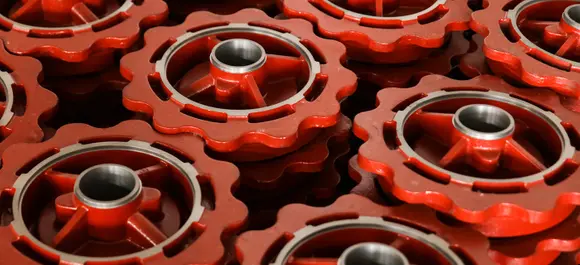Mobile:+86-311-808-126-83
Email:info@ydcastings.com
impeller bronze
The Role of Bronze in Impeller Design and Performance
In the world of engineering and manufacturing, impellers play a crucial role in the functionality of various machinery, particularly in pumps, compressors, and turbine engines. One material that has consistently proven to be effective in impeller design is bronze. Renowned for its unique combination of properties, bronze has become a material of choice in many applications, including the production of impellers. This article explores the reasons behind this preference, the benefits of using bronze in impeller manufacturing, and the challenges that may arise.
Understanding Bronze
Bronze is an alloy primarily composed of copper, with tin being the most common additive. This combination results in a material that boasts enhanced strength and corrosion resistance compared to its primary component, copper. Other elements can also be included in the alloy to enhance specific properties, such as aluminum, manganese, or phosphorus. The resulting material not only has a desirable aesthetic appeal but also possesses excellent mechanical properties, making it an ideal choice for various industrial applications.
Advantages of Bronze Impellers
1. Corrosion Resistance One of the most remarkable qualities of bronze is its resistance to corrosion, particularly in marine environments and applications involving fluids. This characteristic is critical for impellers, as they often operate in harsh conditions where exposure to water, chemicals, or other corrosive substances is inevitable. Bronze’s resistance to oxidation ensures a longer lifespan for impellers, reducing the need for frequent replacements and maintenance.
2. Strength and Durability Bronze impellers exhibit high tensile strength, which allows them to withstand significant mechanical stress. This property is particularly important as impellers are subjected to rapid rotations and varying pressures during operation. The durability of bronze contributes to the overall reliability of machinery, enhancing productivity and efficiency in industrial processes.
3. Wear Resistance In addition to corrosion resistance, bronze is also known for its wear-resistant properties. Impellers experience friction and contact with other components, leading to wear over time. The hardness of bronze helps minimize wear, ensuring smoother operation and longer service life compared to softer materials.
impeller bronze

4. Ease of Machining Bronze is relatively easy to machine, allowing for precise manufacturing of complex impeller designs. This capability is crucial in industries that require the production of customized components tailored to specific operational needs. The machinability of bronze also enables faster production times, helping businesses meet demand more efficiently.
5. Thermal Conductivity Another advantageous property of bronze is its excellent thermal conductivity. This feature is particularly beneficial in applications where heat dissipation is a concern. Effective heat management ensures that impellers maintain optimal performance levels, thereby extending their operational lifespan.
Challenges of Using Bronze
While bronze offers numerous benefits, there are also challenges associated with its use in impeller design. One notable concern is the cost of bronze compared to other materials like aluminum or plastic. The initial investment for bronze impellers can be higher; however, the long-term savings associated with durability and reduced maintenance can justify the expense.
Additionally, while bronze possesses excellent corrosion resistance, it is not entirely immune to electrolysis, especially in environments with saltwater. Therefore, proper application and protective measures should be considered to enhance the longevity of bronze impellers in such conditions.
Conclusion
In summary, bronze remains a formidable material for impeller manufacturing due to its numerous advantages, including corrosion resistance, strength, wear resistance, machinability, and thermal conductivity. While challenges such as cost and susceptibility to electrolysis may present some drawbacks, the overall benefits of using bronze in impeller design far outweigh these issues. As industries continue to evolve and technologies advance, the demand for high-performance materials like bronze will remain significant. This enduring interest in bronze underscores its integral role in the development of reliable and efficient machinery across various sectors. Whether in pumps, compressors, or turbines, bronze impellers will continue to be at the forefront of engineering solutions, ensuring that machinery operates at peak performance for years to come.
-
Why Should You Invest in Superior Pump Castings for Your Equipment?NewsJun.09,2025
-
Unlock Performance Potential with Stainless Impellers and Aluminum End CapsNewsJun.09,2025
-
Revolutionize Your Machinery with Superior Cast Iron and Aluminum ComponentsNewsJun.09,2025
-
Revolutionize Fluid Dynamics with Premium Pump ComponentsNewsJun.09,2025
-
Optimizing Industrial Systems with Essential Valve ComponentsNewsJun.09,2025
-
Elevate Grid Efficiency with High-Precision Power CastingsNewsJun.09,2025











